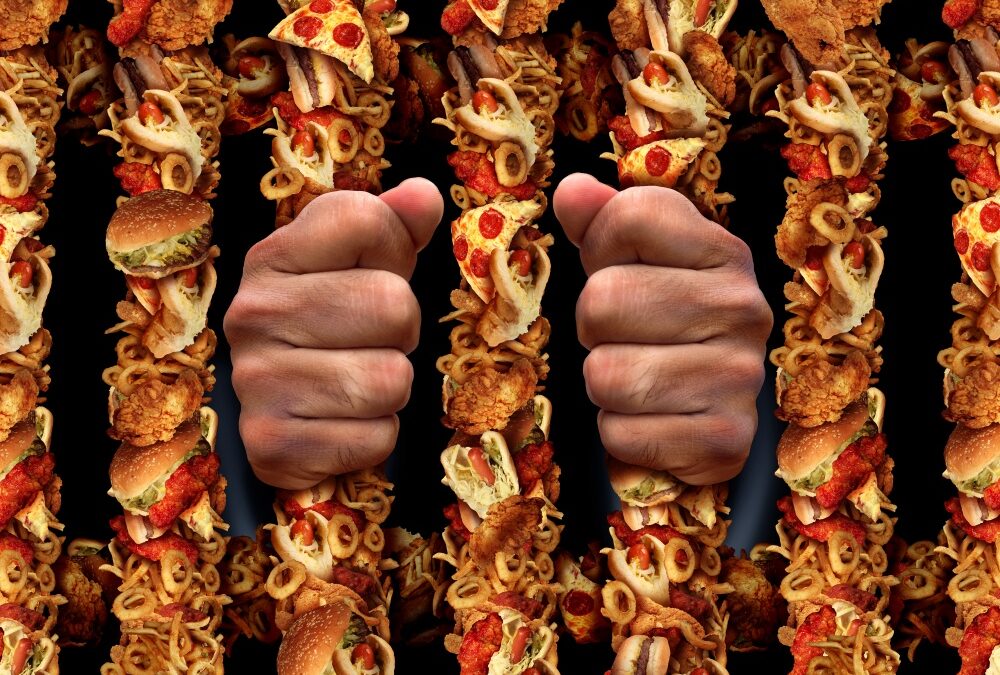Changing Food Behavior: Easily Give Up Junk Food
Changing a food behavior, particularly one that activates the brain’s reward pathways—such as binging on ice cream or sugary drinks while watching a movie, requires an insane amount of willpower.
It’s tough to change habits around food—there’s no denying it, but it’s never too late to make improvements for a healthier body and mind.
We’ll give you the tea on how to make that happen, but first—
Understanding Eating Behavior And Habits
Eating does more than nourish our body; it also influences our mood and emotions.
Here’s the thing:
Several physiological processes take charge of our appetite, telling us when to eat food and when to stop.
While effective, this food regulation system goes back to default settings in the presence of food or food-related cues. Stress, anxiety, and boredom also come into play, and food becomes a coping mechanism instead of a survival essential.
This causes us to overeat even in the absence of hunger, which inevitably leads to weight gain and may result in negative feelings surrounding food.
So much for being a rewarding behavior!
The good news is that you can unlearn it.
Making mindful choices can lead to greater psychological well-being. The body follows the mind, so bringing in this change may improve your biological functioning.
Improving Your Eating Habits: The Ultimate Guide
These strategies can help you make better eating decisions for your weight.
Start by Reflecting on Your Eating Habits
Looking to change your food habits? Start with an assessment.
Create a list of what you eat and drink, writing down what you consumed and when you consumed it. It will give you a bird’s eye view of the frequency at which you’re implementing a certain food behavior and what harm it’s doing to your body.
For example, you may notice you reach for snacks whenever you watch something—which could be a daily phenomenon. By gaining an insight into your patterns, you’ll be equipped to think of your next course of action to become your healthiest self.
Plan To Avoid Setbacks
Our surroundings subconsciously influence the way we behave.
To give you an example, let’s say you visit a restaurant.
The pleasing aromas from the kitchen are sure to shake what little resolution you have to stick to your goals, causing you to give into temptation and experience a setback; that’s how restaurants make money!
Here’s the thing, though.
You already know you’re going to a restaurant with your best buds, so why not eat ahead of time so you’re satiated or carry a healthy snack to munch on? Planning for damage control before issues arise is a great way to “outsmart” the setbacks and stay on track.
I know you’re wondering, “What happens when I’m hit with a setback all of a sudden?”
Well, in that case, remind yourself why you’re making the changes, whether it’s to keep your weight in check, minimize medical bills, or just have more energy.
Practice Mindful Eating
Mindful eating undoes the damage caused by preferential food choices. It makes you more intentional about your eating experiences.
Here are some effective ways to aid your cause:
- Take your sweet time when you eat, eating small bites to fully enjoy the smell, flavor, and texture of your food.
- Don’t use the phone or watch TV when you eat. It prevents you from listening to your body and understanding when you’ve had enough, making you overeat.
- Watch your portion size, especially if you’re raised in a “clean your plate” household.
Most importantly, eat only when you’re hungry.
If you’re feeling sad or bored, go for a walk instead of reaching for your favorite food to bring you comfort. It will boost muscle power, strengthen bones, and improve your ability to fight against medical conditions like diabetes.
Replace Unhealthy Food Habits
It’s easy to reach for processed foods because they’re tasty, filling, and as easy to make as they are to eat.
A one-off when you’re short on time won’t hurt you, but if they’ve become your preferred choice for nutrition and energy, then you’ve got a problem.
These foods contain additives like salt, sugar, and fat that add tons of calories to your diet, which can make you overweight or obese.
The answer to this problem is not skipping meals, mind you—that can only result in lower metabolism and leave you with little to no energy.
Instead, if you notice you eat more of these ready-to-eat meals than actual food, take inventory of your fridge, replacing the problematic ingredients with nutrient-dense alternatives that’ll nourish your mind and body. If temptation knocks at your door, distract yourself by talking to a friend or listening to your favorite podcast.
Breaking linkages will take time—but it’s worth its weight in gold.
Monitor Your Progress
It will help you with accountability of habits, food, and choices.
You can do this by keeping a food journal of the changes you’ve made in your habits of food and how they influenced your mood for the day. You could also take a tech-first approach with a nutrition app that sends you reminders and alerts to help you track your progress and keeps tabs on your calorie intake and activity levels.
Make sure you don’t base your progress on your weight, look at your reasons instead.
- If you did it to lose weight, do your records reflect a drop in inches or pounds?
- If you did it for a healthier body and mind, are you seeing any changes in your overall well-being?
This due diligence will help you assess where you stand. It will help you see whether your efforts are bearing any fruit—or if you’re just “winging” it—sticking to your diet some days while binging on others. It will help you spot areas that could do with some improvement, helping you reach your goals faster.
And Remember, Be Compassionate to Yourself
Changing food behavior takes time. Some days, you’ll feel on top of the world, yet you may feel discouraged on others. Whatever the case, keep pushing through.
Remain committed to your goals, but remember, you’re only human.
There’s always a risk of failure, so if you let yourself slip one day, don’t think it’s the end of the world. Don’t let your efforts towards changing your food behavior go to waste. No matter how far you’ve fallen, pick yourself up, dust yourself off, and return to your new routine with increased vigor.
And soon enough, you’ll see tangible results, making all of it worthwhile.
How Old Is Too Old?
You are never too old to set another goal or to dream a new dream. -C.S. Lewis How old is “too old”? I am often curious about this question. Especially when I hear statements like “I am too old to change”, “this is the way I have always been”, “maybe when I was...
What is your Ikigai?
Not everyone wants to live a long life. But what about a happy and healthy life? If this is you, sit down and pull up a chair. Ikigai might be the answer.
Implications of Sleep and Neurological Rehabilitation
https://youtu.be/FWIX8Ht6bm4 Good quality sleep can dramatically improve neurologic rehabilitation outcomes. Getting adequate sleep might also decrease the rate of disease progression in some neurodegenerative diseases (multiple sclerosis, Parkinson's disease, or...
Stroke Rehabilitation: Overcoming Mental Barriers
Dealing with the aftermatch of a stroke can lead to a whirlwind of emotions including confusion, hopelessness, disappointment, and even despair. If you are in the process of recovery, these emotions are completely normal. Here I break down some of the most common...
Not what you get, but what you become
"What you get by achieving your goals is not as important as what you become by achieving your goals." -Zig Ziglar I often get messages from people who are feeling discouraged. "Progress isn't fast enough". "The process is too challenging". Oh, and by the way, "this...
The Gift of Language
“I will never do (X) ” “I Can’t” “I am always going to be this way” “I will be this way forever” “This is impossible” If you have been following me for a while, you know that I discourage this type of language. It is self-limiting at best, and self-destructing at...
Fix Sleep Disorders after a Stroke
Many have a hard time falling asleep or achieving restful sleep after experiencing a stroke. If you or someone you care about has experienced one, there are ways to get to sleep faster and sleep more soundly. In this article, we’ll review the types of sleep disorders...
Gratitude, Pain, and Suffering
"Gratitude is the healthiest of all human emotions. The more you express gratitude for what you have, the more likely you will have even more to express gratitude for."- Zig Ziglar Ahh, the practice of gratitude. From my earliest memories, I was told “gratitude” is...
Superman
A hero is an ordinary individual who finds the strength to persevere and endure in spite of overwhelming obstacles". - Christpher Reeve, Superman Christopher Reeve. Many know of him as a super hero. And of course this is true. He IS the original Superman. And...









Wonderful post, so relevant for anyone looking to enjoy a happy healthy life.! Having been diagnosed with MS in 01 in my young 30’s and following pure clean food . Cooking from scratch each day , fruit, vegetables salad , oily fish, meat ,seeds nuts. Vitamins supplements ,yoga, meditation and just enjoying what I am able to do, abstract painting colourful in my case! We can continue to stay healthy. Food is my only drug choice. It’s hard but it’s so worth investing in ourselves.